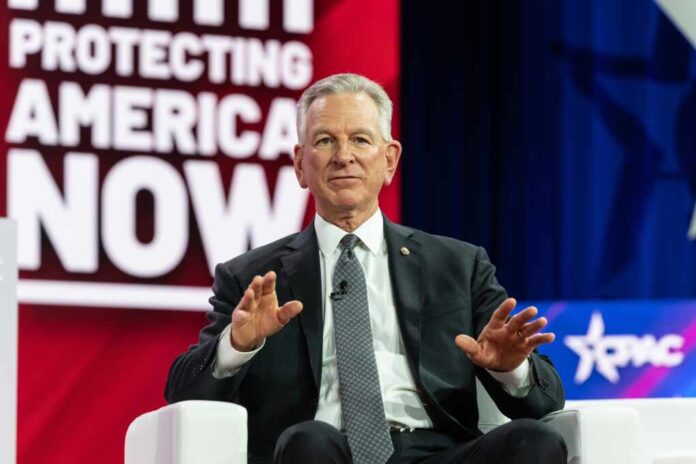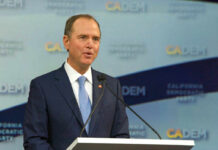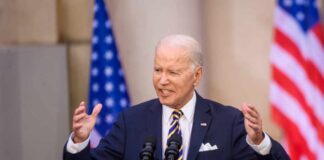
America’s political landscape has recently been witness to a sharp contrast in reactions to two disparate but related issues, highlighting the cynical hypocrisy that exists among some so-called conservative Republicans. Sen.Tommy Tuberville (R-AL) has been at the center of a political firestorm over the last year when he used his position on the Senate Armed Services Committee to delay votes on a large number of military nominees. The move came in protest against the Pentagon’s policy of using taxpayer dollars for service members’ abortion-related travel expenses.
Tuberville’s staunch pro-life stance directed at safeguarding unborn lives was met with severe criticism from Democrats and some military officials, including Defense Secretary Lloyd Austin. They argued that his protest damaged “military readiness” and “national security.” Even fellow Republicans, led by Sen. Dan Sullivan (R-AK), joined in the criticism, claiming loudly that Tuberville was somehow jeopardizing American defense readiness.
Politicos Who Attacked Tuberville’s Abortion Protest Over ‘Military Readiness’ Are MIA On Defense Sec’s Secret Leave https://t.co/bG9Bvd4axF
— Mollie (@MZHemingway) January 9, 2024
However, the narrative shifted dramatically with the recent revelation about Defense Secretary Austin’s undisclosed medical leave. Austin, hospitalized on January 1 for complications following an elective medical procedure, only informed key administration officials, including Joe Biden, days later. This lack of communication left the U.S. defense apparatus in the hands of Deputy Secretary Kathleen Hicks, who was also unaware of Austin’s condition for a significant period.
The silence from many of those who criticized Tuberville is telling. Senate Majority Leader Chuck Schumer (D-NY), a vocal critic of Tuberville’s protest, has not publicly addressed Austin’s lapse in communication. Sen. Jack Reed (D-RI), who previously lambasted Tuberville’s actions, has only expressed mild concern over Austin’s actions.
This discrepancy in reactions raises questions about the genuine concerns of these politicians. Tuberville’s protest, although controversial, was a legitimate use of his senatorial powers to highlight an issue he believed in. In contrast, the lack of transparency from a high-ranking defense official like Austin seems to have been met with a less stringent response from the same voices that condemned Tuberville.
Furthermore, Republicans like Sullivan, along with Sens. Lindsey Graham (R-SC) and Mitt Romney (R-UT), who previously opposed Tuberville’s pro-life position, have not commented on Austin’s situation. This silence should be perceived as a double standard, considering the potential implications of Austin’s absence on national security and military readiness — the issues they viciously accused Tuberville of jeopardizing.
Tuberville’s protest eventually ended, with the senator lifting his holds on some military promotions. Nevertheless, he succeeded in bringing pro-life concerns to the fore in Washington, even as many neoconservative establishment Republicans stood with the military-industrial complex against the sincerely held beliefs of their conservative constituents.
The contrasting reactions to Tuberville’s protest and Austin’s medical leave highlight a troubling inconsistency in conservative political discourse. While Tuberville’s actions were met with immediate and severe criticism, the response to Austin’s lack of communication has been notably muted.





























